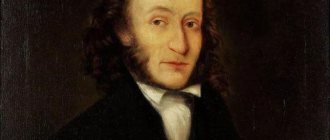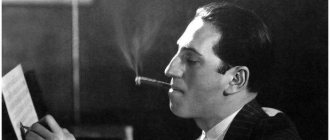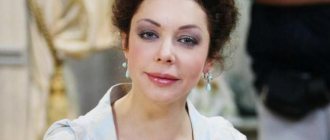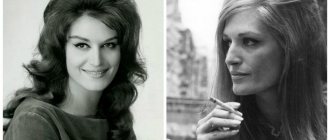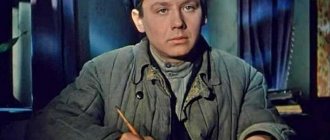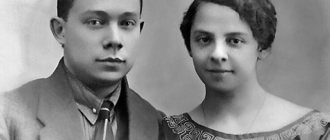08/06/2018 Julia Norman 2 comments
Jean Marais is the most famous French actor of the twentieth century. He played the roles of knights, nobles, and noble robbers in historical adventure films, most of which were included in the Golden Fund of Cinema. The costumes from the times of the kings suited the artist extremely well, and his courageous appearance and handsome face made girls’ hearts beat faster.
Films with Jean Marais, shot in the 40s, 50s and 60s, amaze with their dynamics and abundance of stunts. The actor participated in all difficult and dangerous episodes without a stuntman. Moreover, at the risk of his life, he did several takes. Fortunately, Mare was not injured and lived to a ripe old age. Excellent physical fitness allowed him to act in films and play in the theater until the mid-90s. Viewers who grew up watching his costume paintings still loved his characters and wanted to see the actor on stage.
Childhood and youth
Jean Alfred Villin-Marais was born in the port of Cherbourg on December 11, 1913. His father Alfred was a veterinarian by profession, and his beautiful mother Aline Marie was a housewife. The family had two children: Henri and Jean. The couple's daughter died shortly before the birth of her younger brother.
In 1914, Jean's father was called up for military service, and he was reunited with his family after the end of the First World War. In early childhood, Henri and Jean often stayed with their grandmother, as Aline Marie stole things from stores to sell later. Times were hard, and this was how she supported her family. Jean adored his mother, and for him separation from her was a real tragedy.
Returning from the war, Alfred Villin-Marais divorced his wife and refused to help her and his sons. A woman with children and mother moved to Paris, reasonably believing that there were more opportunities in the capital than in small Cherbourg.
True, her youngest son did not please her with his academic success, constantly getting into scandalous stories with pranks on teachers and classmates. He drew well, and painting was one of the few sciences he mastered. It seemed to Jean that he read poetry perfectly and was ready to become an artist without wasting time on learning the profession.
Upon entering the Paris Conservatory, he failed for 3 years in a row and tried in vain to get at least a small role in the theater. One day a young man was lucky - he was invited to audition for a movie. After watching the footage, Mare lost heart: a young man with wide, frightened eyes was looking at him from the screen, pronouncing the words of the role in a falsetto.
Mare made his living in a factory, and later in a photo studio that allowed him to print his portraits for free in order to send them to studios. The first test filming demonstrated the need for special education, and in 1933 Jean entered Charles Dullen's acting courses. Even before the start of his creative career, he got rid of the dissonant part of his surname and left only the short one - Marais.
Biography of Jean Marais
Jean-Alfred Villin-Marais was born on December 11, 1913 in the city of Cherbourg. His father was a veterinarian, but Jean did not remember him, since his parents divorced when he was five years old. From an early age the boy dreamed of becoming an artist.
At the age of thirteen, he leaves school and goes to work. He worked part-time in a radio workshop, at a factory, and was an apprentice photographer. Despite everything, he remained true to his dream of acting in films and did not stop sending his photographs to different film studios in the hope that he would be noticed.
Marais entered the acting department of the Paris Conservatory, but was defeated three times. Nevertheless, in 1930 he was enrolled in the Charles Dullen acting school. Three years later, he was given a small role, after which he was constantly invited to play various episodes in films.
Meeting director Jean Cocteau influenced the career and fate of the future actor. In 1938, he offered Mara a role in the film “Knights of the Round Table.” Subsequently, Jean played in most of his films.
After the outbreak of World War II, the actor went to the front. There he drove a fuel truck. For the courage and courage shown during the war, Jean was awarded the Military Cross.
Career
In 1943, after the movie “Eternal Return”, he became a star. But, despite the success, he was always critical of himself and did not suffer from star fever. He remained as good-natured and natural as before.
Jean starred in comedies and adventure films, and performed all the difficult stunts on his own. Always in good physical shape, he played the roles of brave heroes. His images were romantic and adventurous at the same time.
Since 1950, he became a famous and sought-after film actor in France. He was offered roles by great directors: Luchino Visconti, Abel Gance and others.
In 1960, Marais played alongside the outstanding Louis de Funes in the popular film Fantômas. His role in this trilogy is one of his most successful roles. The film "The Count of Monte Cristo" was also a huge success. These two films became bestsellers in French cinema.
Since 1968, Mare began to engage in pottery and sculpture. His work was highly appreciated by Pablo Picasso himself. One of his popular works was the sculpture “Man Passing Through a Wall”, which can be seen in Montmartre in Paris.
He also wrote memoirs. At this time, he rarely acted in theater and cinema. Between 1970 and 1995, Mare starred in only seven films.
Jean Marais artist
In 1975, his autobiographical book “Stories from My Life” was published. Two years later, another book is published - “The Tales of Jean Marais”.
He independently completed all the illustrations for it. He was also interested in painting. An exhibition of his paintings was held in Paris in 1995. The artist Marais was awarded the French Order of Arts.
The beginning of a creative career
In 1934, Jean Marais played tiny roles in the films Scandal and The Adventurer directed by Marcel L'Herbier. After the release of the film, the debutant barely found himself on the screen, but persistently attended auditions at studios and theaters, and from time to time he managed to get work.
The fateful meeting of the young actor with the brilliant writer and director Jean Cocteau took place in 1938. Students from various acting courses interacted with each other and exchanged information about upcoming productions.
Having heard about the recruitment of extras for the play “Oedipus the King” based on Cocteau’s work, Jean Marais came to the troupe’s meeting and met the director. He was struck by Mare’s courageous appearance and the dignity with which he carried himself.
As a result, the actor almost got the main role, but under pressure from the other participants in the play, Cocteau was forced to abandon this idea. The audience received Oedipus the King poorly, and Jean Marais, who appeared on stage in a small role, cast menacing glances at the front rows to calm the troublemakers.
Already in the next production - “Knights of the Round Table” at the Efr Theater - the actor played the main character. Friendship with Jean Cocteau contributed to the rise of his career.
In addition to theatrical works, the director filmed him in his films and introduced him to cult personalities: Coco Chanel, Edith Piaf, Luchino Visconti, Pablo Picasso and others. At first, they perceived Mare as a handsome young man, but each of his new roles in the films “Eternal Return” “Beauty and the Beast” and “Orpheus” made me change my mind.
Cocteau saw his protégé as a romantic hero and cast him in the corresponding films, but Jean Marais gained much greater fame by starring in the films “Cloak and Sword.”
Movies
In the first films, Jean Marais appeared sporadically. Its main success is associated with the name of director and screenwriter Jean Cocteau. It was their duet that gave the world such films as “Eternal Return”, “Beauty and the Beast”, “Terrible Parents” and many others. Most of the joint works are recognized as world masterpieces, but the fantasy parable “Orpheus” stands out, which in a modern form shows the ancient Greek myth about the poet who descended to hell for his wife.
Starring in the film "Orpheus" | Cinema
The films of Jean Marais are most often adventure films, and his role is that of an irresistible, brave, physically strong hero. And what is most important for the female half of the audience is invariably romantic. By the way, Marais, like another famous French actor Jean-Paul Belmondo, was one of the very few who performed absolutely all the stunts on their own. He fought superbly with swords, rode horses, jumped out of windows, and dived into the water from bridges.
With Leah Amanda in the film “The Count of Monte Cristo” | Cinema
Fans of retro cinema enjoy Jean's performance in such films as Leathernose, The Glass Castle, The Count of Monte Cristo, The Hunchback, Captain Fracasse, The Princess of Cleves and Parisian Mysteries. All of these films were made before the early 60s. Later, in the filmography of Jean Marais, the inimitable comedy trilogy “Fantômas”, “Fantômas went wild” and “Fantômas against Scotland Yard” appeared. His duet with Louis de Funes creates another sensation, and all over Europe people go to film screenings many times, and boys play Fantômas. By the way, Mare played two roles there at once - both the mysterious masked criminal and the journalist Fandor.
In the film “Fantômas went wild” | Cinema
As Jean grew older, he acted less. His big role in the 80s can only be considered Victor Blaise from “Family Ties”, and in the 90s only the modernist film adaptation of Victor Hugo’s novel “Les Miserables” and the melodrama “Stealing Beauty” were released, where he got the small role of Monsieur Guillaume .
The most famous films starring Jean Marais
In the Soviet Union, any film with the participation of a French star became a significant event. Spectators stood in line for tickets, and boys in the courtyards acted out scenes from the exciting film. In the 50s, the popularity of Jean Marais was the highest throughout the world.
The beautiful and noble characters of historical paintings aroused no less interest than the personality of the actor himself. His roles made many people study the history of France and dream of traveling to this country.
"The Count of Monte Cristo"
The hero of the novel by A. Dumas, who after being imprisoned in a dungeon transformed from a sailor into an all-powerful count, was recognized by the public and journalists as the best Edmond Dantes of all time. Mare is harmonious and effective in this role.
The Count of Monte Cristo's superiority over his enemies is obvious, but he still evokes great sympathy.
"Captain"
The films “The Captain”, “The Hunchback” and “Secrets of the Burgundian Court” were the result of the actor’s collaboration with film director Andre Hunebel. In his films, he played brave nobles fighting for the future of the country. In The Captain, Marais plays de Capistan, who saves the throne of young Louis XIII.
Films of the 50s are distinguished by luxurious costumes and sets. In addition, directors still cast exceptionally beautiful actors and actresses in them. This tradition of French cinema would only disappear with the New Wave in the late 60s.
"Hunchback"
"The Hunchback" in some ways became the predecessor of "Fantômas". In the historical film, Mare changes his appearance, turning from Chevalier Lagardere into a gloomy hunchback. He protects the daughter of the treacherously murdered Duke de Nevers, who later becomes his wife.
Many fights and duels keep the viewer in suspense until the end of the action, although it is impossible to believe that anyone will be able to defeat the hero Jean Marais.
Film series "Fantômas"
Having discovered an original script about the mysterious villain Fantômas, Andre Hunebel decided to combine the masculinity and charisma of Marais with the comedic gift of Louis de Funès in one picture. The audience was delighted with the on-screen couple, after which two more films in this series appeared.
Jean Marais played two roles in them: the journalist and Fantômas, and de Funes - Inspector Juve, trying in vain to cope with the latter’s criminal genius. In the very first months of the show, each film became a box office leader because it was watched many times.
Film career
Initially, Jean Marais began appearing in films in episodic roles. Then he began to collaborate with director Jean Cocteau, which resulted in the famous films “Terrible Parents”, “Beauty and the Beast”, etc., most of which are recognized by film critics as a world masterpiece.
However, what stands out the most is his work on the film Orpheus, which is a modern adaptation of the ancient Greek myth, where the poet descends to hell for his wife. Most of the films in which Jean Marais starred were adventure films, and his hero was romantic, brave and physically strong.
During filming, Jean Marais always performed all the stunts on his own: he rode a horse, played scenes with sword fights, dived from great heights and jumped out of windows. In the 60s Jean Marais starred in such iconic films as:
- "The Count of Monte Cristo";
- "Hunchback";
- "Parisian Secrets";
- "Princess of Cleves";
- "Glass Castle"
In the Fantômas trilogy, Jean played 2 roles at once - Fantômas and Fandor
Later, a trilogy of films about Fantômas was released, where Jean Marais plays in a duet with Louis de Funès. These films make a strong impression on the public, and people began to go to film screenings of these films several times, and children even began to play games with the participation of the hero Fantômas. Gradually, Jean Marais began to act in films less often.
During the period of the 80-90s. His distinctive roles were in the films Les Miserables, Family Ties and Stealing Beauty.
Other facets of talent
Jean Marais drew beautifully, and always found time to devote to this activity. He loved to paint portraits of friends and colleagues and, in addition, made sketches of future sculptures. Sculpting was his passion and he always succeeded.
At the end of his life in a villa near Cannes, Mare set aside a large room as a workshop and created in it alone. Eldar Ryazanov, filming a program about the famous actor, was surprised by his skill as a sculptor. Mare's works were praised by Pablo Picasso and other famous artists.
Personal life
Mare did not hide his bisexuality. The artist's name is always associated with the writer Jean Cocteau. This talented prose writer and poet fell in love with the handsome young man at first sight, and for several years from 1938 to 1942. they lived together.
Cocteau interested Mare in reading the classics and studying art. Jean's acting skills made a huge leap after starting to work with the director. Under the guidance of a mentor, Mare wanted to learn, and this came easily to him. In turn, he fought Cocteau’s drug addiction as best he could. In artistic circles they were called “Two Jeans”.
In 1942, the artist married his partner in the film “Canopy Bed” Mila Pireli. While filming, they began a passionate romance and rented a shared apartment.
Cocteau did not arrange scenes for his lover, but it was at that time that he wrote the best film scripts for him. The costumes for one of them, Beauty and the Beast, were made by Christian Dior and Pierre Cardin. Often Cocteau's paintings were partially sponsored by Coco Chanel.
After 2 years of marriage, Mare became interested in actress Michelle Morgan and filed for divorce, but she was one of the few who resisted his charm. Her love was Henri Vidal, and the couple soon tied the knot.
After the war, Mare began a stormy relationship with Marlene Dietrich. In the 50s, he met the attractive dancer Georges Reich and appeared with him at parties and festivals for almost 10 years.
The beginning of the 60s turned out to be difficult for the actor. His father died after a long illness. Marais went to see him in Cherbourg to try to improve relations. Upon returning to Paris, his mother informed him that Villin-Marais was not his natural father, but that his biological godfather was in fact his.
At the same time, Jean's older brother, Henri, became seriously ill. The artist helped him, but the disease prevailed, and he died in Paris. In 1963, Marais also lost Jean Cocteau, with whom he always maintained warm relations.
After all the losses and separation from Georges Reich, Marais decided to adopt an orphan teenager. It was the gypsy Serge Ayal. If the actor dreamed of repeating the relationship that he had with Cocteau, then he was sorely mistaken.
Serge turned out to be vain and lazy and had no intention of getting an education or working for a career. He spent his adoptive father's money and disappeared at parties. Before his death, Jean Marais annulled his paternity in order to bequeath his fortune to a married couple of potters who looked after his house, but Serge started a lawsuit and won part of the inheritance.
One could go on and on about the wonderful qualities of Jean Marais as an actor and as a person. But one of them should be especially highlighted: the simplicity of character that was characteristic of him all his life. Due to this feature, the actor believed that everyone’s love for him was groundless, since there was nothing to love him for. The first person who confessed his love to him was none other than the famous film director Jean Cocteau. At that time, Jean Marais was more than twenty years old, he had already worked as both a newspaper seller and a photographer’s assistant. He did not have a special cinematic education: Jean Marais was denied study at the conservatory... The twenty-two-year-old handsome man, who as a child loved to dress up in women's clothes and already had connections with men, met the famous playwright and director solely for the sake of his career and from the very first meeting he was internally ready for him to offer to sleep with him. Cocteau gave him the role he wanted without asking anything in return. And suddenly - a phone call: “Come immediately, a disaster has happened!” The self-centered actor thought that they wanted to take the role away from him or something like that. But when Marais arrived, Cocteau said: “Disaster... I’m in love with you.” What could Marais do? “This man, whom I admire, gave me what I wanted more than anything in the world. Without demanding anything in return. I do not love him. How can he love me... it’s impossible.” Marais lied and replied: “I’m in love with you too.” Under the influence of Cocteau's talent and kindness, the lie became the truth, Marais fell in love with Cocteau. Soon he moved to live in Cocteau’s house: it was both more comfortable and warmer here... The actor’s collaboration with the outstanding French director Jean Cocteau, which began in 1937, lasted for many years. Jean Cocteau greatly contributed to the development of Jean Marais as an actor, Jeannot - this name was given to him by Cocteau, who was so attached to Marais that he covered all the walls of his house with portraits. He did not remain in debt - he never gave offense to his teacher. He could give blows to anyone who hinted at their life together. It was the teacher who guided Jean Marais through life, constantly giving him advice. So, before filming the film “The Princess of Cleves” based on one of the novels by Radiguet (a talented young writer who died at the age of 23, it is worth noting that at the same time Cocteau’s former lover, who helped him in the development of literary talent), Cocteau recommended that the actor first read not the script of the film, but the novel itself. By the way, Jean Marais starred in this film together with Marina Vladi. Among their collaborations are such masterpieces of world cinema as “Orpheus” and “The Return of Orpheus”. Among the actor’s other works are filming with Luchino Visconti, roles in many costume and historical films (“The Count of Monte Cristo”, “Captain”, “Les Miserables”). One of the highest-grossing French films was the three series about the confrontation between Fantômas and Commissioner Juve, played by Jean Marais and Louis de Funès. Nevertheless, age takes its toll, Marais becomes interested in young men. Cocteau sees this, and one day Marais finds a letter under the door: “My beloved Jeannot! I loved you so much (more than anyone else in the world) that I ordered myself to love you only as a father... I am mortally afraid of depriving you of your freedom... The thought that I could constrain you, become an obstacle to your wonderful youth, would be monstrous. I was able to bring you glory, and this is the only satisfaction that my play has given, the only thing that matters and warms me. Think about it. You will meet someone your age and hide it from me. Or the thought of the pain you will cause me will prevent me from loving him. It’s better to deprive yourself of a piece of happiness and gain your trust so that you feel freer with me than with your father and mother.” Touched, Marais broke off frivolous ties, but not for long. Over time, Cocteau had another lover, but the friendship between the writer and actor remained until Cocteau’s death. And in his book of memoirs, Mare speaks of his talented friend only in superlatives. Mare’s attachment to Cocteau is understandable; he needed male support, because Jean hardly knew his father. In 1914, when the boy was not even a year old, his father, a doctor by profession, went to war. When he returned, Jean was already five years old. But my parents divorced. There are two sons left in the mother's arms. Jean's mother was a very beautiful woman, a daring mind, great passions and oddities. From time to time she appeared in luxury stores, selected blue fox boas, hid them under her skirt and calmly left. On the day of the divorce, she decorated the entire house and arranged illumination. And she went to Paris in a special sleeping car, in which only the President of the French Republic was supposed to travel. It is possible that the mother’s illness was transmitted to the child, but did not develop to great extents. One day Jean carried away a whole box of oil paints. In order to somehow use them, I began to try to draw. This is how his love for painting arose, and subsequently for sculpture, which became his greatest passion after cinema. If not for cinema, Jean Marais could have become a good artist. Once Picasso, having seen one of Mare’s creations, said: “He might not be involved in such nonsense as cinema.” When World War II began, Jean Marais immediately went to the mobilization point and accidentally overheard a conversation between officers who complained about the lack of cars. Mare immediately offered them his. The position of a driver with his own car allowed him to receive some benefits. And when they found out that this driver was the film actor Jean Marais, he was allowed to eat not in the soldiers’ canteen, but in a restaurant. Jean Marais failed to perform heroic deeds in this war. Subsequently, the actor said about it this way: “I did not run away from heroism, but heroism stubbornly ran away from me.” In 1943, French cinema produced a record number of films - 82. Paradoxically, the occupation of France contributed to the revival of film production. This happened because access to French distribution of American films was closed, although before the war a lot of films from overseas were shown in French cinemas. German films did not attract viewers. French filmmakers, not wanting to cooperate with the occupiers, began to create detective films and film “apolitical” classics, inviting Jean Marais to shoot, who starred at that time in the films “The Curling Flag Blooms,” “Carmen,” “Canopy Bed,” “ Eternal return." The last picture, directed by Jean Cocteau, was a huge success. This was exactly the case for Jean Marais about which they say: “The next morning he woke up famous.” Mare's name appeared in almost every newspaper column. And a jacquard sweater, knitted according to a medieval pattern and purchased in advance in Rome especially for filming in the film, revolutionized men's suits. Mare explained his success in this film by the fact that Muluk took part in the filming. That was the name of the dog that Mare picked up in Provence. The dog was tied to a tree and looked longingly at the cars passing by. And Mare, taking pity on the dog, took him to himself. After that, he never parted with his new friend. Cocteau, touched by such affection, introduced the dog into the script. After filming this film, despite the fact that Jean Marais was already a recognized movie star and an idol of the public, he went to the front, where he had at his disposal a fuel truck that delivered fuel for tanks. During one of the bombings, he did not leave the car and for his bravery was included in the list of those nominated for the award - the Military Cross. Then the division was taken to rest in Chateauroux, and Mara was allowed to stay in Paris during the filming of the film “Beauty and the Beast”. After the end of the war, in the fifties, Jean Marais plunged headlong into the world of theater, where... he created scenery and, amazing the audience with new, unexpected facets of his talent, reaped laurels together with Annie Girardot. It is no coincidence that his 80th birthday was widely celebrated on the stage of the Parisian theater, where such stars as Marina Vladi, Michelle Morgan, Catherine Deneuve were present. To reach the heights of Olympus, the presence of external data was clearly not enough. It was also necessary to have courage, and Mara had no shortage of that. He performed his own stunts and had to undergo treatment for his wounds more than once. At the same time, he never tired of laughing like a cheerful devil. Interestingly, Mare did not adhere to any regime that would help him constantly be in shape to perform any difficult tricks. Already at an age, he did not seem to feel any danger. One example. In 1963, Mare came as a jury member to the Moscow International Film Festival. After another press conference, held, as always, on the twelfth floor of the Moscow Hotel, the photographer dragged Mare to the balcony and there asked him to climb onto the parapet, straighten up to his full height, and somehow unthinkably tilt back so that one of the stars would get into the frame Kremlin. Mare performed everything easily and gracefully, as if he was not standing over a forty-meter abyss.
Awards and nominations
The actor received the Military Cross for his military service during World War II. He drove a fuel truck to the front line to refuel military vehicles.
For his first leading role in Jean Cocteau's film, he received the Bambi Award. In total, the artist has 4 of these German media awards. He was also awarded the Silver Lion prize of the Venice IFF and the Order of the Legion of Honor.
In 1993, Mare received an honorary Cesar for outstanding services in cinema. Many films in which Jean Marais played were nominated for and won various international awards.
Last years of life and death
With age, Mare began to act less frequently. By his own admission, in the late 60s he was still offered film roles as noble fighters for justice, but he refused them. More than once the character he played seemed intrusive and annoying to him.
In the 70s, there were practically no offers, and he focused on theatrical productions. Marais himself directed Jean Cocteau's plays and selected sets and costumes for them.
Having bought a villa on the Cote d'Azur, in Villaris, he took up painting and studied pottery. In 1988, he was diagnosed with bone marrow cancer, but those around him hid the diagnosis from him. The actor continued to work in the theater and considered ailments to be signs of impending old age.
Jean Marais caught a bad cold in 1996 and contracted pneumonia, after which his health never fully recovered. He joked with journalists that before the premiere of the play based on Shakespeare’s “The Tempest,” he was caught in a downpour and barely survived.
The title of the immortal work seems to have caused a “global flood.” At the beginning of 1998, he could barely move and died on November 8 from pulmonary edema. On his tombstone there are fairy-tale animals based on his own sketches.
All of France mourned their favorite. People listened to Jean Marais' farewell speech and cried in the streets. Another idol of the audience, artist Alain Delon, canceled his birthday celebration, since the death of his friend and colleague occurred on that date.
The country's President Jacques Chirac noted that Jean Marais's contribution to the development of French art is invaluable.
Cause of death of the actor
Nothing passes without a trace. Numerous injuries received by the actor while performing complex stunts made themselves felt in old age. Mare began to faint. During the examination, doctors made a disappointing diagnosis: bone marrow cancer. He endures pain courageously and patiently. After undergoing treatment and deciding to change the course of his life, the actor retired to his villa, gradually drew and wrote memoirs. He died on November 8, 1998 at the age of 85. The cause of death was pulmonary edema. Not many people know where the French actor is buried. His grave is located in the Old Cemetery of Vallauris, which was robbed by vandals in January 2020, taking one of the lion figures from the tombstone. The sculptures were made according to the sketches of Jean Marais.
Few people know, but it remains a fact that on the eve of his death, feeling worse, the actor left an audio recording of his address to fans with words of sincere gratitude and a declaration of love to all viewers of his films. The address was so touching that when, on the day of the funeral, it was heard on the cathedral porch of Valoris, all those gathered wept. It even got to the point of fainting. The country adored its idol.
The personal life of Jean Marais is integral to the history of French cinema. The talented actor's enormous contribution to the development of Russian art was highly appreciated by the country's President Jacques Chirac. On the Internet you can find many books written about the French actor and read them online. The network also has music from the group Jean Mare, but it has nothing in common with the hero of our article.
Interesting Facts
Until the end of his life, Jean Marais admired the work of Jean Cocteau and, likewise, wrote several books and independently illustrated them. One of the works was children's fairy tales, the rest are dedicated to memories of Cocteau.
Mare presented his own biography honestly and without embellishment. He did not hide either character flaws or illusory childhood hopes for future glory. The only thing he never talked about was how much effort it took to prepare the stunts and overcome difficulties during filming.
Colleagues spoke of the actor as an extremely charismatic and friendly person, who, however, could lose his temper. This happened when he was treated disrespectfully and was late for meetings or his point of view on a filming episode or scene from a play was rejected without reason.
He himself was touchingly caring: he paid for his friends' taxis when they left his house, and never allowed them to collect the bill at the restaurant. For several years, Marais and Bourville headed a society to help disabled actors and did everything they could for those in need.
